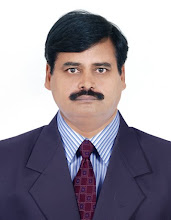Dear All
It is the fact, FARMERS in spite of their noble cause of producing FOOD to all are not happy with their activity mainly because they get poor support from the authorities at all levels including: before production, during production & after production.
One of the key issue of the West Bengal Farmers as reported in Down to Earth (Feb 1-15th 2012) has got the attention of the stakeholders.
The reflections made by me on this key issue were furnished below as:
.....................................................................................................................
It is the fact that 70% of our population depends on Agriculture....farmer is the king (Ryte Raju)as we are all eating food because of them only...they are the back bone to our nations' development... still, the farmers were not supported well to continue their production activity. Who is creating all these challenges?.... Certainly the non- producers? .....Why the authorities are not understanding these ANNADATAS (who provides food for all).
The farmers all over India do face several challenges like:
Before Production - which includes support for inputs, bank linkages etc.
During Production - water, pesticides etc.
After Production - storage facilities,marketing facilities, poor procurement facilities,
In spite of all these challenges,still farmers are able to sustain these challenges and continuing production. it is the fact that many of them are migrating to do non-agricultural activities and facing its consequences on medical, social and economical aspects of self and family. When this creates severe vulnerability they commit suicide.
Knowing that FOOD is the essentially part of our life, still the authorities are not supporting the farmers to do their production.
It is clearly reflecting in the case of West Bengal Farmers. They are not pulling on with the production mainly due to the storage and procurement facilities. I hope this is the simple measure for the concerned authorities to resolve this farmers issue.
Let us come out with clear and systematic need based strategies for supporting the farmers all over India so that we all can eat better food for leading better living with sustainability and quality of life (QOL).
.......................................................................
Looking forward to get better solution with support for the FARMERS all over India.
All the Best

